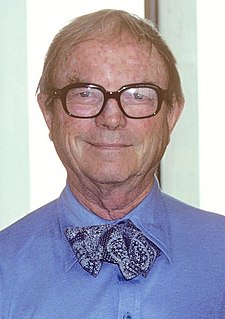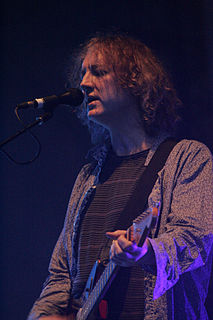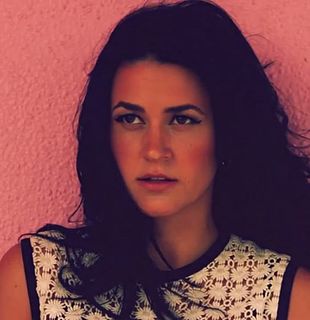A Quote by Marcel Duchamp
Distortion came first from the fauves, who, in turn, were under the strong influence of primitive art.
Related Quotes
The kind of influence you want is a much deeper influence. It's like empowerment. Things are like this, but what if they were like that? What happens if you turn everything inside out? It's something that not just artists do. I think scientists do that, too. There's a theory: What if we pour water on it? That's also what a child does. If a child came in now, the child would ignore us, go under the table, and make a house.
In fact a man in love or one consumed with hatred creates symbols for himself, as a superstitious man does, from a passion of conferring uniqueness on things or persons. A man who knows nothing of symbols is one of Dante's sluggards. This is why art mirrors itself in primitive rites or strong passions, seeking for symbols, revolving round the primitive taste for savagery, for what is irrational (blood and sex).
In the course of the history of natural science, it always happens that profound or true thoughts or true facts were always either distorted or flattened out. The danger, especially of distortion, is particularly great in the case of orgonomy. We must be scientific, we cannot be political in these matters. And I personally declare that I will be the first to fight with all my strength, with whatever I've got against such a distortion of our principles.
Sometime in the last 50,000 years, before 12,000 years ago, a kind of paradise came into existence. A situation in which men and women, parents and children, people and animals, human institutions and the land all were in dynamic balance and not in any primitive sense at all. Language was fully developed, poetry may have been at its climax, dance, magic, poetics, altruism, philosophy. There's no reason to think that these things were not practiced as adroitly as we practice them today and it was under the boundary dissolving influence of psilocybin.
Once upon a time there were two sisters. One of them was really, really strong, and one of them wasn't.' You looked at me. 'Your turn.' I rolled my eyes. 'The strong sister went outside into the rain and realized the reason she was strong was because she was made out of iron, but it was raining and she rusted. The end.' No, because the sister who wasn't strong went outside into the rain when it was raining, and hugged her really tight until the sun came out again.
One of the first sights that shocked me, when I came to Israel in 1921, was an Arab turning over a field with a very primitive plow; pulling the plow were an ox and a woman. Now, if it means that we have destroyed this romantic picture by bringing in tractors, combines, and threshing machines, this is true: we have.







































